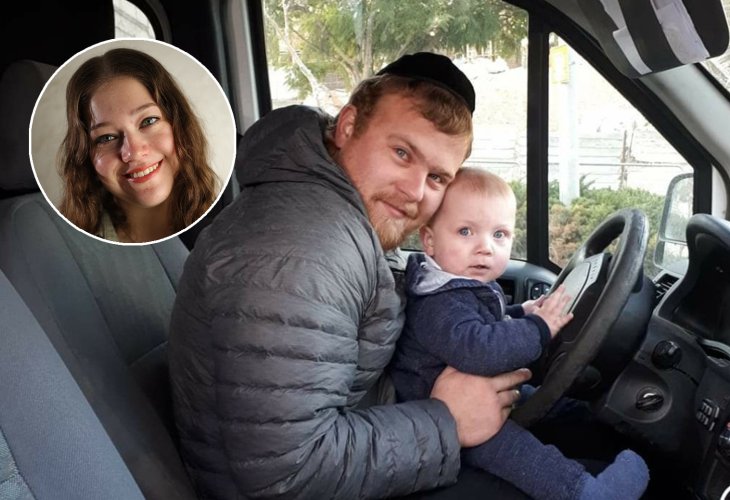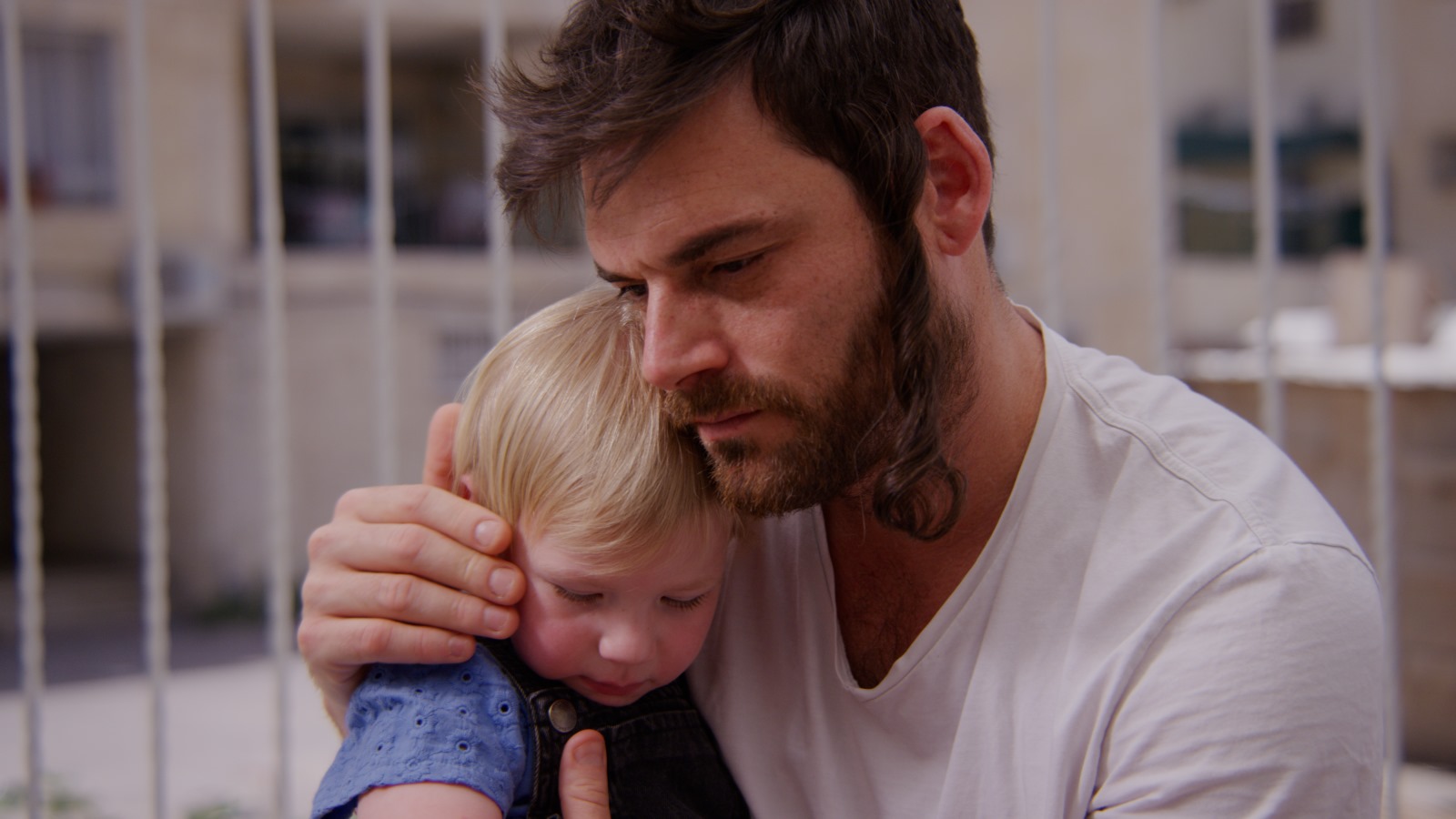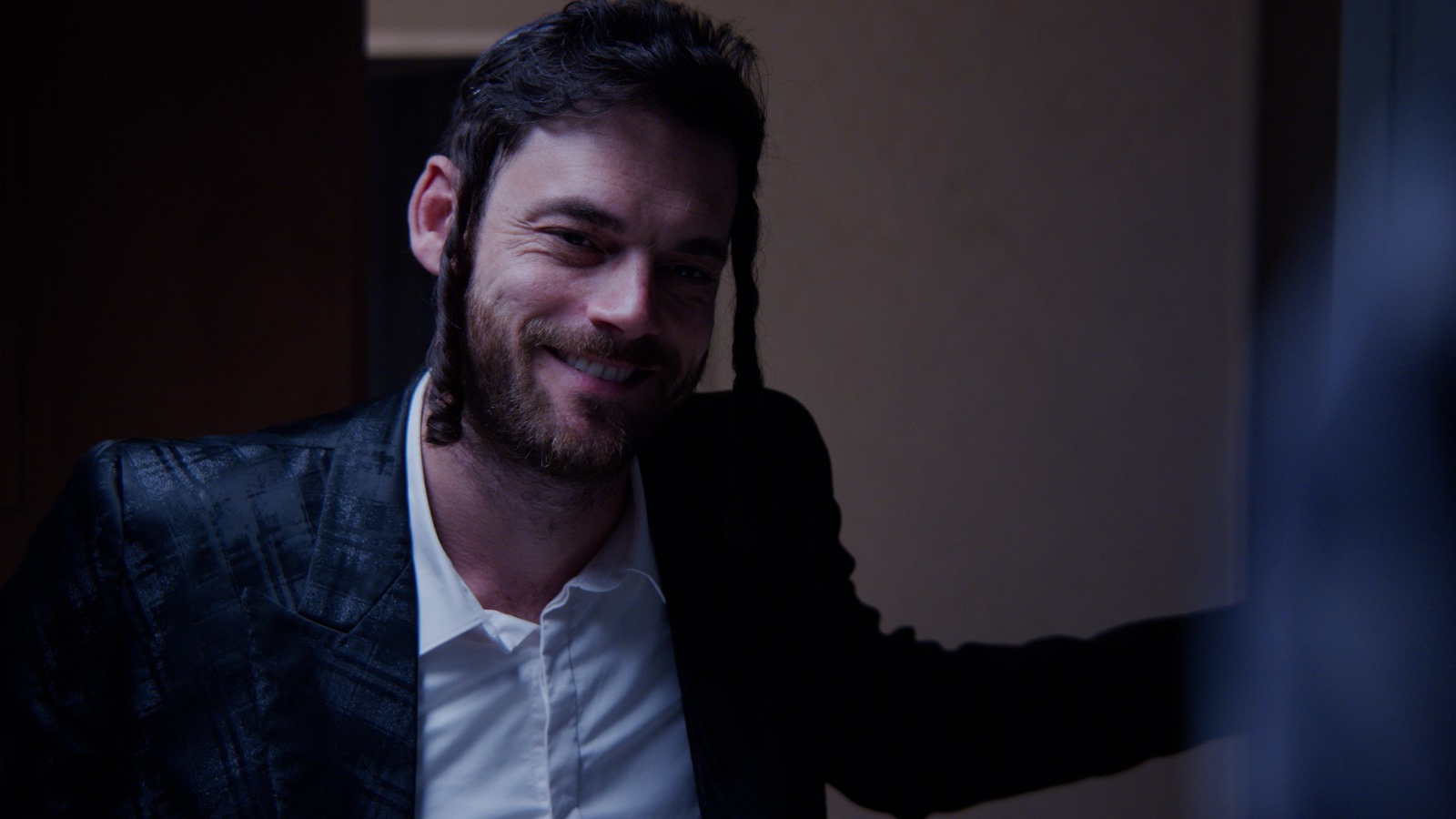Finding Strength in Loss: Shulamit's Journey
At just 21, Shulamit Markowitz-Lebel faced the devastating loss of her husband in a car accident. Her journey through grief, faith, and creativity has led her to create a film documenting parts of her life. She insists, 'Art is what allows me to choose life.'
 Nachman Yosef Markowitz, beloved husband of Shulamit
Nachman Yosef Markowitz, beloved husband of ShulamitWhen Shulamit Markowitz-Lebel married her husband Nachman Yosef Markowitz, she was only 17, and he was 20. Like every young couple, they were full of joy and excitement, never imagining how short their shared life would be.
A year after their wedding, their first son was born, followed by another son two years later. Nine months after that, just days after Simchat Torah, her young husband tragically died in a car accident. From that moment, as Shulamit recalls, her life changed completely. 'I never thought I'd be 21 and alone with two little kids, but when you realize that's your reality, you just have to learn to live with it, because there's no other choice.'
Life Comes to a Halt
More than four years have passed since that terrible day, but Shulamit can't forget a single detail. 'It was Friday morning,' she recalls, 'my husband hadn't been home all night and was supposed to return first thing. Our last conversation was at 6:30 am, and he said, "I'll be home soon." Meanwhile, I got the kids ready for their day. Before leaving, I called him, but there was no answer. I returned home to pack for the Shabbat family gathering we planned in Jerusalem with my grandfather, who came especially from abroad. All morning I continued trying to reach him with no success. It was strange, as it wasn't like him not to answer and he said he'd come home, so why hadn't he?'
Looking back, Shulamit says she felt something was wrong, but couldn't admit it to herself. 'I tried to deny it,' she explains. By 11:30, she left to pick up the kids and took the bus, continuously calling her husband. 'Then I got a sudden call from my dad, asking where I was because he needed to talk to me,' she recalls. At that moment, she knew something horrible had happened. 'My father runs a busy Shabbat catering business, especially on Fridays, so if he's asking to come to me instead of vice versa, it's certain something happened.'
In the next moment, she checked her WhatsApp groups for any clues and found the painful news: 'A 24-year-old from Beit Shemesh was killed in a car accident.' 'I was on the bus with my two children,' Shulamit recalls, 'holding on tightly so I wouldn't fall, unable to believe it was true. Yet, I was grounded enough to get off at the main entrance to our building instead of the back because I knew at times like these, police arrive to deliver the news, and I wanted to meet them out front. Indeed, a police car waited in the parking lot when I arrived, and I broke down crying. Meanwhile, my father arrived and tried gently breaking the news saying, "You know, Yossi's not well..." But then the officers came up to the apartment, asked me to sit, and delivered the definitive news: "Nachman Yosef was involved in a car accident and died on the spot." Those were their exact words.
A Shabbat of Shock
Because the tragic news arrived Friday afternoon, Shulamit's next hours were focused on arranging the funeral to bury her husband before Shabbat. Interestingly, the planned family Shabbat was advantageous, as the family was already in Jerusalem, where the funeral took place.
'I operated on autopilot,' Shulamit remembers. 'I finished preparing myself and my kids for the trip, taking out the clothes I had packed for Yossi from the suitcase. I was in utter shock—there was pain and tears, but mostly, I remember the overwhelming shock because I didn't comprehend what was happening. Even at the funeral, seeing so many look at me with pity, as if to say, "Not only has her husband died, but she also has two small kids to care for..." I didn't grasp, I didn't process what was happening around me.'
Throughout Shabbat, Shulamit remembers herself smiling. 'One thing Yossi was adamant about was not crying on Shabbat. It was so important to him to be joyful, and by doing so, I felt I continued his way. I moved among everyone, while they were steeped in deep sorrow, with faces reflecting the mourning of Tisha B'Av, and only I saying, "Let's be happy, it's Shabbat." No one understood what was happening with me.'
Where did you find the strength to be joyful?
'I believe these are special strengths that Hashem gives especially for the week of mourning, so you don't experience the blow in all its severity. I've seen it in others who underwent similar experiences whom I've met. These are forces one didn't know before, but Hashem gives them specifically at that time.'
What happens afterwards, are the forces taken away?
'It's not accurate to say they are taken away, but the understanding hits you suddenly, and you realize you're alone, and you have to continue functioning and doing everything necessary because no one else will do it for you. Even those who supported you initially disappear, and I don't blame them. Of course, during the Shiva, everyone supports, and also initially after, but in the end, it’s my life that stopped while everyone else's continued.'
One thing that strengthened her was her husband's distinct joy. 'It was something everyone who came to comfort mentioned. They all said they'd never seen Yossi without a smile and lifting spirits. This was truly a strong trait of his, and I try to carry that with me along the way. To this day, when people meet me, they often ask, "What's with the smile?" because thank God, I'm always smiling. I also tried adopting Yossi's strong faith. He didn't question or complain, but accepted with joy and love what Hashem gave. I strive to emulate him.'
Almost No Memories
What do you tell the kids about their father?
'The kids don't remember him, as they were very young, and I'll tell you something—I myself couldn't remember him initially after the trauma. My memory of everything related to Yossi was erased. Only months later did memories start coming back like flashbacks, but even now when everything seems behind me, there are still difficult feelings I struggle with. I very much understand what my children are going through. At first, I saw that my eldest remembered somewhat, but now he hardly has any memories. I make sure to hang pictures at home, and sometimes the kids mention wanting 'Daddy,' but they know he's in heaven. My eldest often recalls the sukkah he built with his dad on the eve of the last Sukkot, weeks before he passed. That's the only strong memory left for him.
'Generally, our routine is joyful and full; we're happy and joyful,' Shulamit emphasizes, 'but sometimes, during family celebrations or when the kids progress in something or during holidays, we feel that loss again and know our family will never be like others.'
Remember, Hurt and Grow
Shulamit's incredible strength and ability to stay above water in such painful times helped her begin studies in photography, writing, and film at the "Maalot" institution for the religious community right after the Shiva week. 'I registered for studies prior because I've always loved art and creation, and it was clear this was an area I wanted to invest in, but I never imagined the opening day would fall precisely during my Shiva week for my husband.'
To this day, Shulamit recalls her conversation with the coordinator informing them she couldn't attend the opening day as her husband had died in a car accident. 'The coordinator was shocked,' she remembers, 'but the shock was even greater when I showed up a week later for class. This was my first time leaving the house since the Shiva, which was very difficult for me. I even took a calming pill, but I didn't give up. The girls in class asked why I wasn't there the previous week, and I calmly replied, "My husband died, and I sat Shiva." Then I got up and went to the bathroom, leaving them stunned. That's how my first day of classes started.'
Shulamit admits initially she wasn't focused, struggled to learn and complete assignments, but eventually discovered that it was precisely the studies that held her together, urging her out into the world and to bring out her best qualities. After completing her studies at 'Maalot', she continued at the Jewish film school 'Torat Hayim' in Yad Binyamin. 'Since then, I've been deeply involved in writing, directing, and photography,' she shares, 'and over time, I realized that through creativity, I can express what I feel inside, as it has a very powerful force.'
What do you mean?
'During my widowhood, I often dealt with "down" periods when I had no energy to do anything or see anyone. I looked for an answer to how you deal with such a state and decided to explore the topic through a film. Initially, I searched for a strong story to depict it, and eventually took a step further, basing it on parts of my husband’s and my life, as he too experienced a period of depression. I chose to address this struggle as the screenplay basis. I started writing and realized how demanding this task was, as it came from the deepest parts of my heart. There were times when I wrote more and times I couldn’t write anything. Ultimately, after two years of work, a fascinating feature film emerged, based on the reality we lived, though it’s not a documentary or biographical. Only basic elements are taken from our life story.'
Who is your target audience?
'When I presented the film to different audiences, I was surprised by how everyone relates from their own experiences, as it's a film for anyone wanting to connect emotionally and engage with the subject. This is why currently, when crowdfunding to complete the production, I'm appealing to everyone. Once finished, I plan to screen it at various events in Israel, and hopefully worldwide.'
 Images from the film produced by Shulamit (Photo: Oron Cohen)
Images from the film produced by Shulamit (Photo: Oron Cohen) (Photo: Oron Cohen)
(Photo: Oron Cohen)However, Shulamit claims she's already gained much from the film. 'Since starting this project, I feel it gave me my life back. The work on the film greatly helped me process the challenging period I went through, relive what happened to my husband, and gain strength to move forward.'

